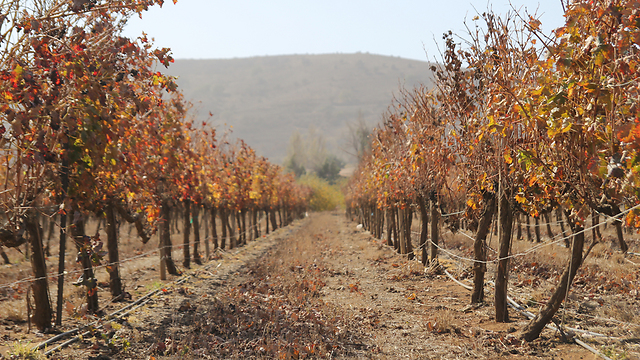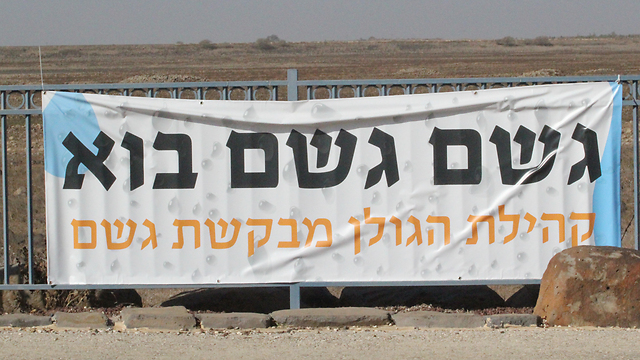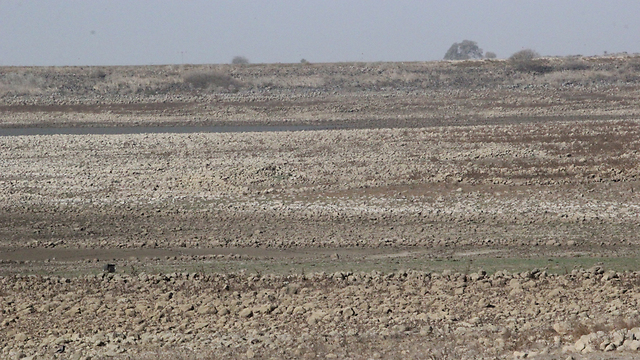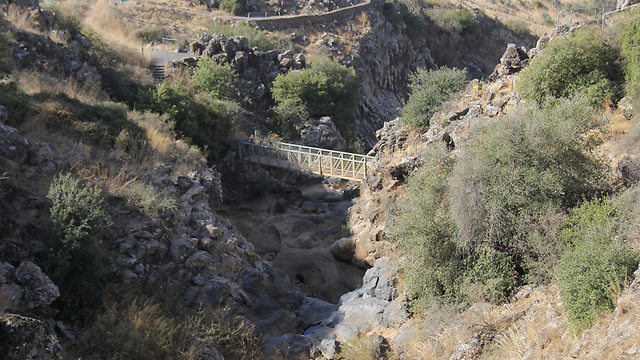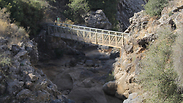
Farmers watch helplessly as drought strikes Israel
Since April, northern Israel’s farmers forced to contend with the ‘longest summer in the country’s history’ amid total absence of rainfall; as reservoirs and streams remain empty, farmers are forced to activate irrigation systems; ‘we assume there is a drought every year unless proven otherwise.’
Israel is once again bearing the harsh brunt of its hot climate as it faces a drought intensified by the easterly winds making this summer the longest in the country’s history.
Since last April—almost eight months—not one drop of rain has fallen in northern Israel, an area crying out for water. Not only can the dry conditions be felt in all areas by the population, but they can also be seen as farmers witness the conspicuous absence of flowing streams and the low levels of water in the north’s much depended-upon reservoirs.
Indeed, so dire has situation become, farmers have been left no choice but to draw upon reserves by opening up the water sprinklers and irrigation lines during the winter season.
Water reservoirs in the Golan Heights, which are relied upon to accumulate water throughout the winter for the protracted heat of the summer, remain empty. The situation is perhaps best exemplified by the shortage of water in the largest reservoir of all, ‘Birket Israel.’
Situated between the towns of Haspin and Nov, Birket Israel currently contains a mere 300,000 cubic meters rather than the expected millions of cubic meters. Other streams and waterfalls remain completely water-deprived.
“Unfortunately we go by the strategy whereby every year is a drought year until proven otherwise,” said Eitan Sadeh, the director of the Golan Association which is responsible for water supply to farmers in the Golan Heights.
“Every October and November perhaps half a millimeter of rain falls in the Golan. Usually, these are months during which we don’t water the farms. But this time there was no choice because the (fruits and vegetables) need water now: olives, apples, and kiwis.”
The dream of a farmer, said Sadeh, is to have a excess surplus of water which they will not know what to do with. “That is the hope. But in reality we are preparing for another year of drought,” he gloomily stated.











